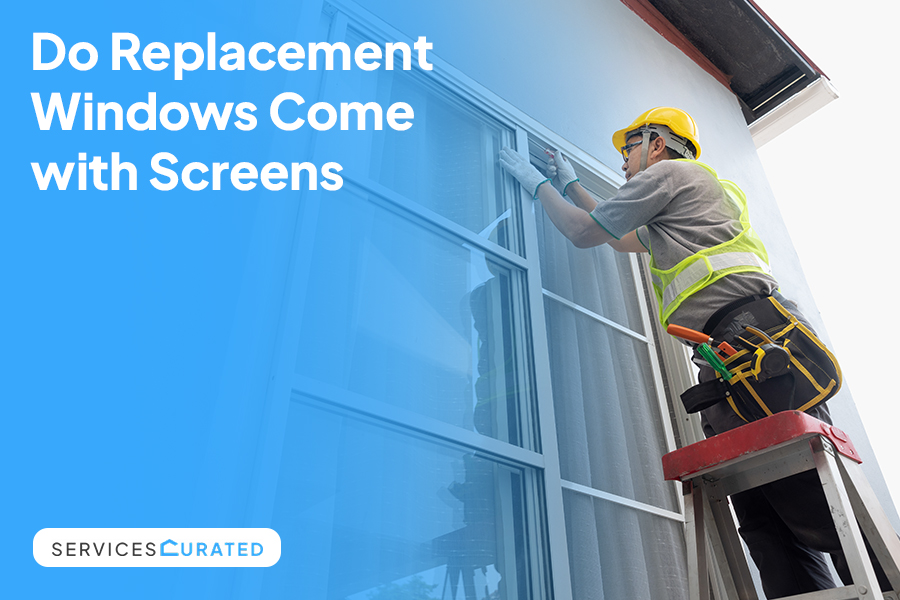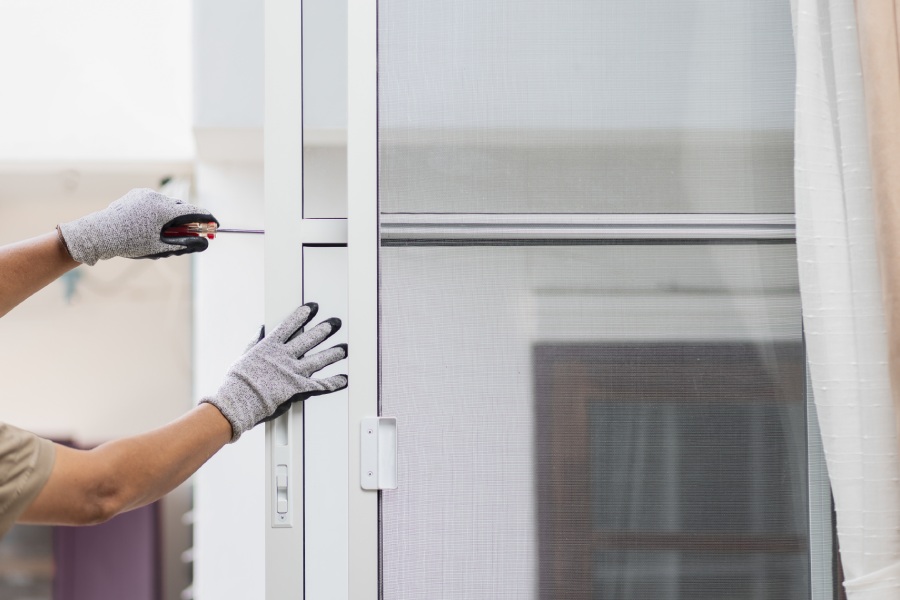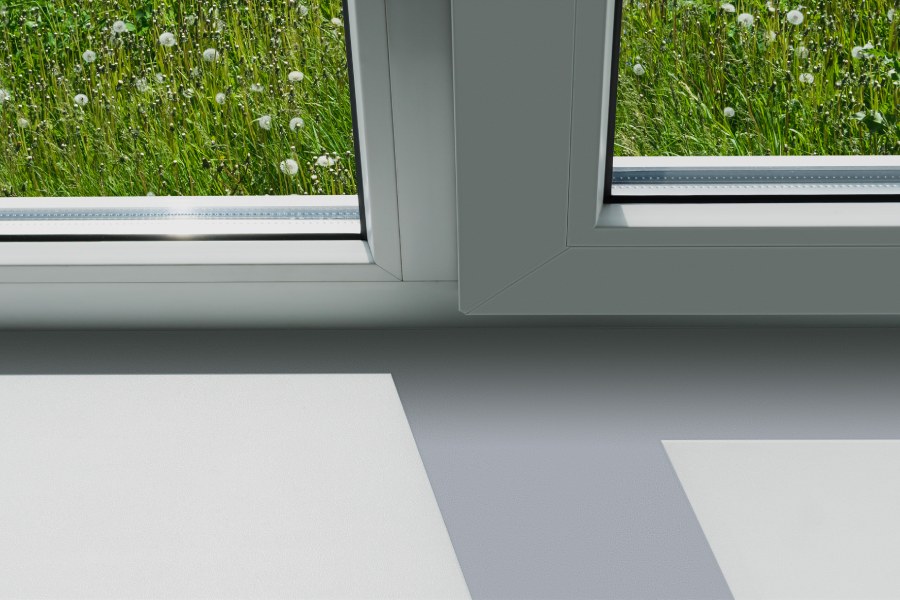Do Replacement Windows Come with Screens?

Enhancing your home’s comfort and functionality often involves upgrading to replacement windows. A key consideration during this process is the inclusion of window screens. But do replacement windows come with screens?
We will dive into window screens and their relationship to replacement windows. We aim to clarify a common confusion point for most homeowners.
We will explore industry practices, potential variations, and what you should know before making your window replacement decision. The answer might surprise you and could significantly impact your window replacement plans.

Do Replacement Windows Come With Screens?
Replacement windows are custom-made to fit existing openings, enhancing a home’s energy efficiency and aesthetic appeal. Unlike new construction windows, which require the full removal of the window frame, replacement windows are designed to fit within the existing structure, making installation simpler and less disruptive. Whether or not these windows come with screens often depends on the manufacturer and model.
In many cases, especially with windows designed for ventilation, such as double-hung or sliding windows, screens are included as a standard feature. However, budget-friendly models or certain brands might exclude them. Also, fixed windows typically don’t require screens, which can influence their availability with these types.
When shopping for replacement windows, it’s important to ask about the inclusion of screens, carefully review the product specifications, and assess your specific needs. Never assume screens will be part of the package; always verify to avoid unexpected surprises and to ensure the windows meet your expectations.
Types of Screens Provided
When considering replacement windows, you may find yourself pondering the screens that accompany them. Generally, there are two primary types to choose from: full screens and half screens. Here is more about the screens:
Full screens
Full screens are designed to cover the entire window opening, from top to bottom, allowing a generous flow of fresh air while keeping insects at bay. Full screens are an excellent option if you prefer to open your windows fully or desire maximum protection from bugs.
They complement various window types, including single-hung, sliding, casement, and awning windows. With full screens, you can enjoy ample ventilation without worrying about unwelcome critters making their way inside.
Half screens
Half screens only cover the lower part of the window. They’re commonly used on double-hung windows, where you typically open the bottom part for air. Half screens have some advantages too. They can be a bit cheaper since they use less material.
They also leave the top half of your window uncovered, which means you get a clearer view and more natural light. Some prefer this look because it opens their rooms and shows off nice window frames.
Screen Material Options
When choosing replacement windows, you’ll notice that screens are made from various materials. Each material offers unique benefits, making it essential to understand your options before making a decision. The materials are the following:
Fiberglass screens
Fiberglass screens are the most common choice for replacement windows, and their popularity is well-deserved. Crafted from thin fiberglass threads woven into a resilient mesh, these screens are designed to withstand various weather conditions without easily breaking or tearing.
In addition to their durability, fiberglass screens are remarkably flexible, often bouncing back into shape if bumped. They also possess a significant advantage: fiberglass does not rust or corrode, ensuring that your screens will maintain their aesthetic appeal over time, regardless of whether you live in a dry or humid climate.
Aluminum screens
Some replacement windows may come equipped with aluminum screens, which are crafted from thin metal wires woven tightly together. These screens are less likely to bend or warp compared to fiberglass, making them an excellent choice for households with children or pets that might push against the screens.
Moreover, aluminum is resistant to dents, allowing the screens to maintain their attractive appearance even after being bumped or struck. While aluminum screens are less common than their fiberglass counterparts, they offer exceptional durability and can be a fantastic option for those seeking extra resilience.
Pet-resistant screens
If you have pets, consider investing in pet-resistant screens specifically designed to endure the wear and tear caused by animals. These screens are constructed from stronger materials with a tighter mesh, making them highly resistant to scratching and pushing. As a result, they offer enhanced durability while maintaining their appearance for a longer period.
When selecting screen materials for your replacement windows, it’s important to factor in your climate as well as the potential for wear and tear. Don’t hesitate to explore various options or upgrades, as this will ensure that your windows perform effectively and look great for years.
Customization and Upgrades
When considering replacement windows, you have the opportunity to customize or upgrade your screens. Many manufacturers provide options that extend beyond standard screens, including high-quality materials like fiberglass and durable metals such as aluminum or stainless steel.
Opting for custom screens improves durability and enhances air quality within the home. These screens balance aesthetics and functionality, offering better long-term value by lasting longer and contributing to overall home comfort.
The Importance of Checking With the Manufacturer
Checking with the manufacturer or retailer is crucial when purchasing replacement windows, as it helps you understand exactly what is included in the purchase. Inquiring about specific features, such as screens and other accessories, enables buyers to assess the overall value of their investment.
By asking detailed questions regarding product specifications, warranties, and additional components, you can avoid surprises later. Verifying these details empowers you to make informed decisions, clarifying quality, performance, and installation expectations. This diligence enhances satisfaction with the purchase and ensures that the chosen windows fulfill aesthetic and functional needs.
Installation Considerations
When installing replacement windows with screens, the process typically begins with measuring the window openings to ensure a precise fit. In many cases, screens are installed by the manufacturer during the window production process, allowing for a seamless integration that enhances aesthetics and functionality.
However, some homeowners or contractors may choose to install screens separately, especially if they prefer a specific type or style that the manufacturer doesn’t offer. Proper installation of screens is crucial, as it ensures they fit securely within the window frame, preventing gaps that could allow insects or debris to enter the home.
Additionally, well-installed screens contribute to the longevity of both the screens and the windows, helping maintain optimal performance over time. This careful attention to detail during installation enhances functionality and protects the investment in replacement windows.
Do Replacement Windows Include Sills?
Replacement windows typically do not include new window sills as a standard feature. Instead, the existing sill, which is part of the original window frame structure, usually remains in place during the window replacement process. This practice is largely due to the sill’s integral role in the home’s construction; removing it can lead to complications and additional costs.
However, if the existing sill is damaged or if you desire a change, many window replacement companies offer options to replace or refurbish the sill during installation. Depending on its condition and your preferences, this may involve adding a new sill cover or completely replacing the sill. It’s important to discuss sill options with your window installer before the project begins to ensure your expectations are met.

Does Window Replacement Include Trim?
Window replacement typically involves the installation of new window units; however, it often overlooks the importance of replacing the trim. Trim serves functional and aesthetic purposes, acting as a separate yet integral component of the window installation process.
It covers gaps, adds decorative elements, and is available in various materials such as wood, PVC, and composites. When contemplating trim replacement, it is essential to assess for damage, consider aesthetic updates, and evaluate potential energy efficiency improvements.
Conclusion
So, do replacement windows come with screens? While many replacement windows include screens, the inclusion often depends on the manufacturer and model. You should take the time to inquire about the specifics of their window options, including the type of screens available—whether full or half screens—and the materials used, such as fiberglass or aluminum.
This knowledge helps avoid surprises and ensures that the windows meet aesthetic preferences and practical needs. In this pursuit of quality home improvements, it can be beneficial to partner with a trusted resource like Services Verified.
We meticulously audit and verify contractors, ensuring you find reliable professionals for your projects. With our dedication to transparency and trust, you can make informed choices about services that improve your living spaces, secure in the knowledge that industry-leading professionals support you.
